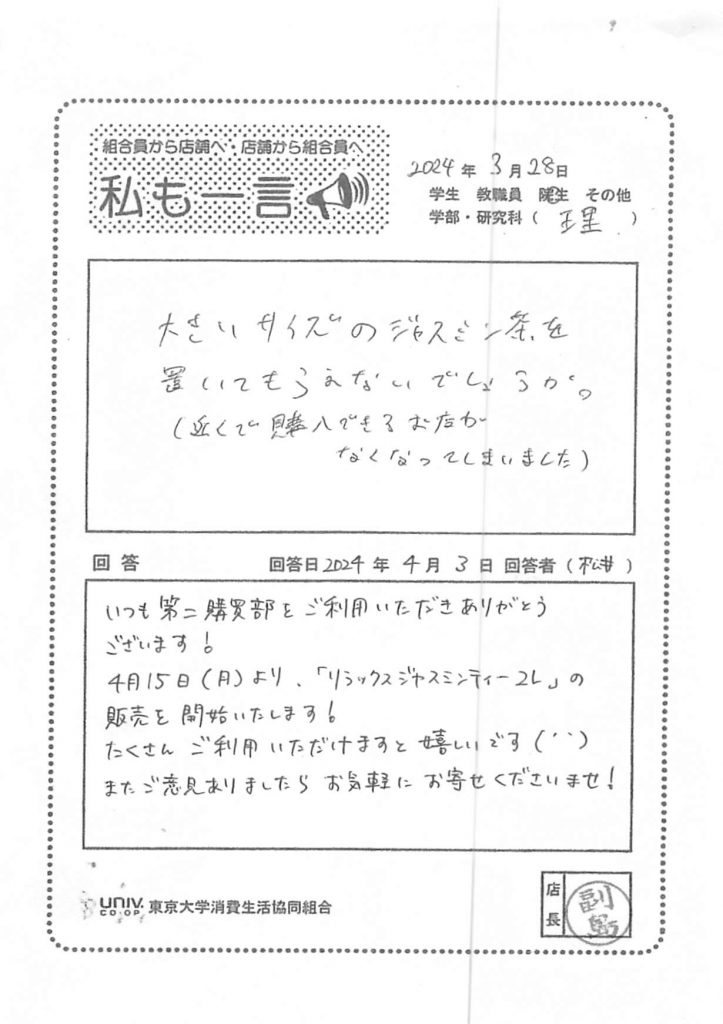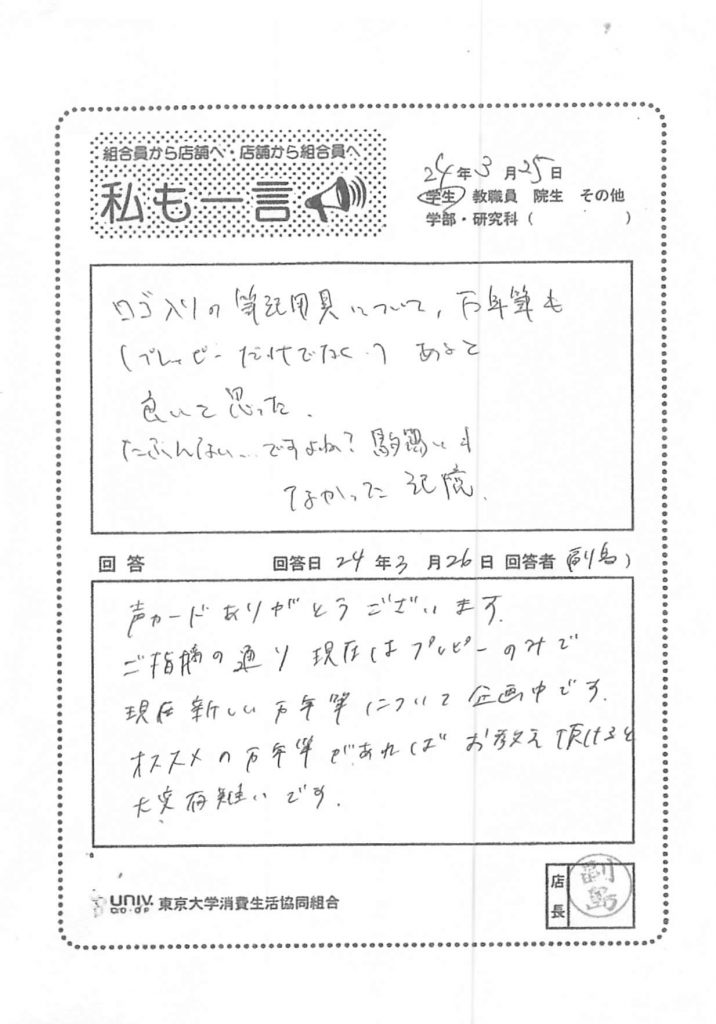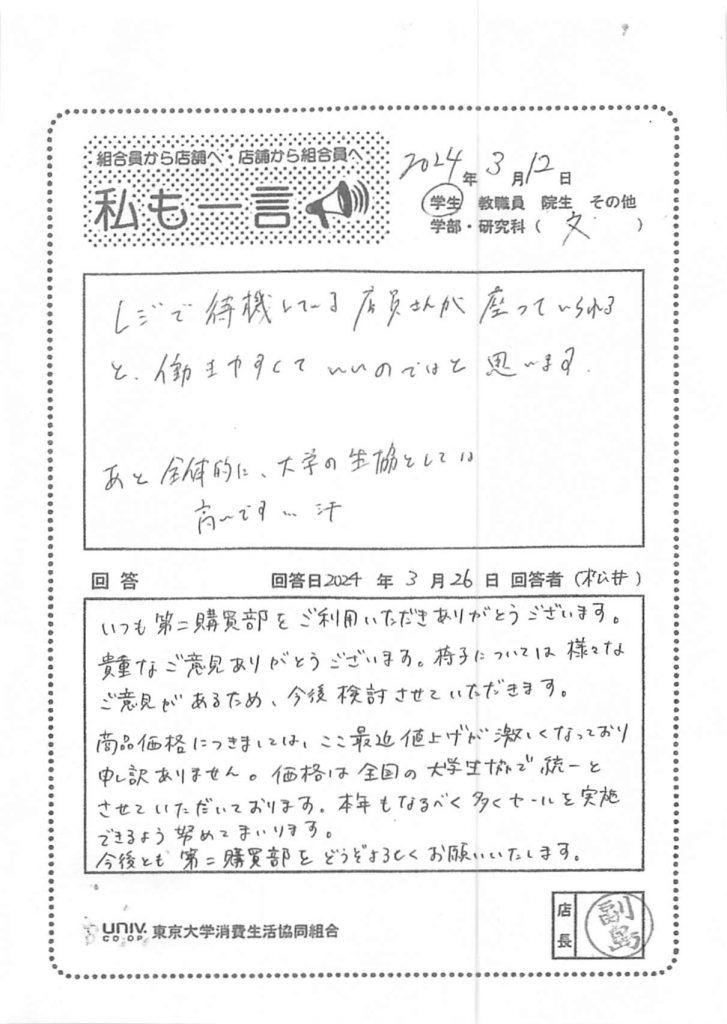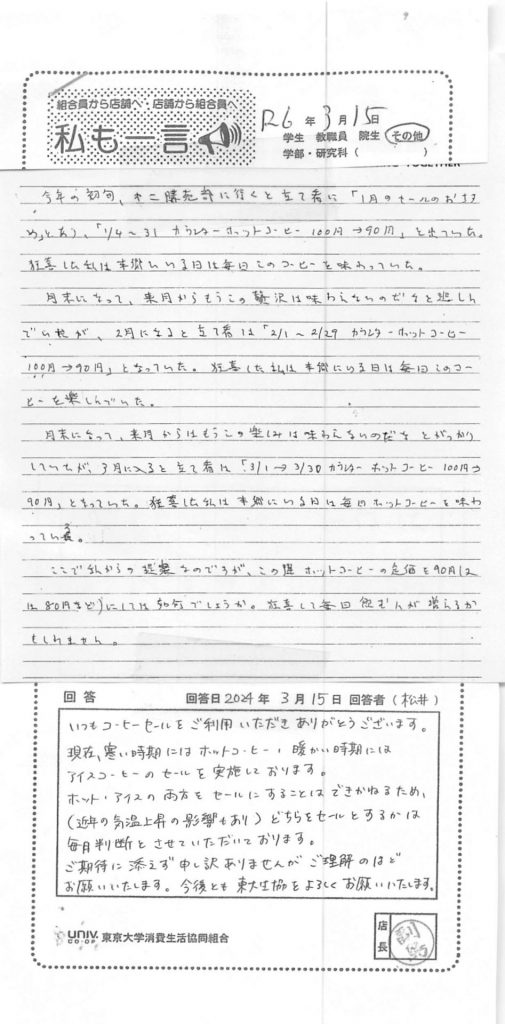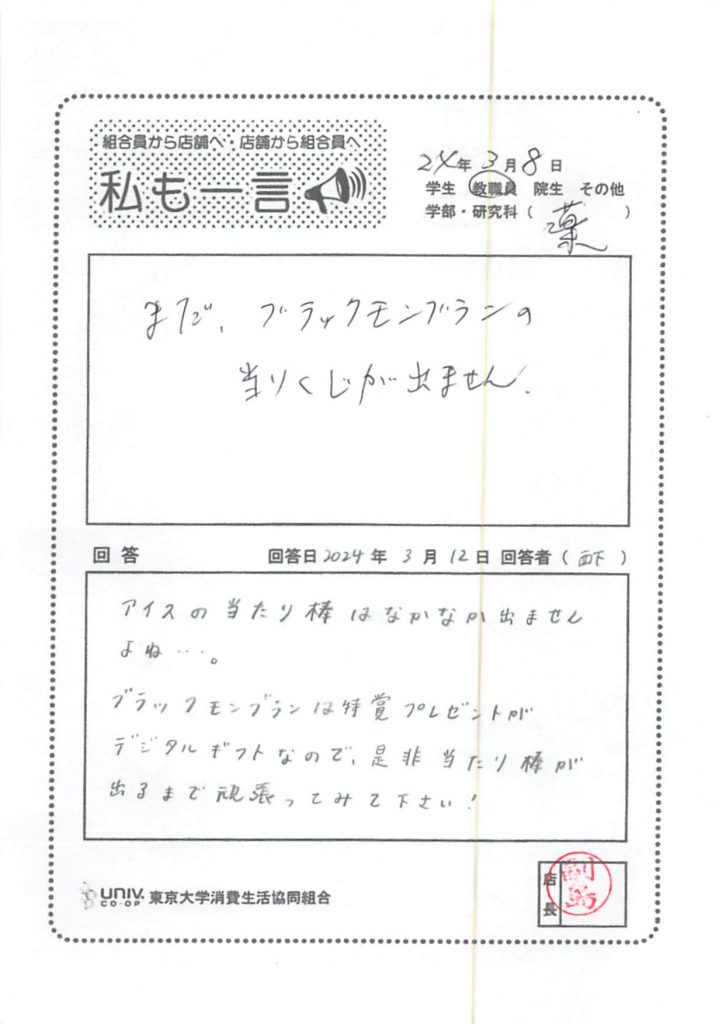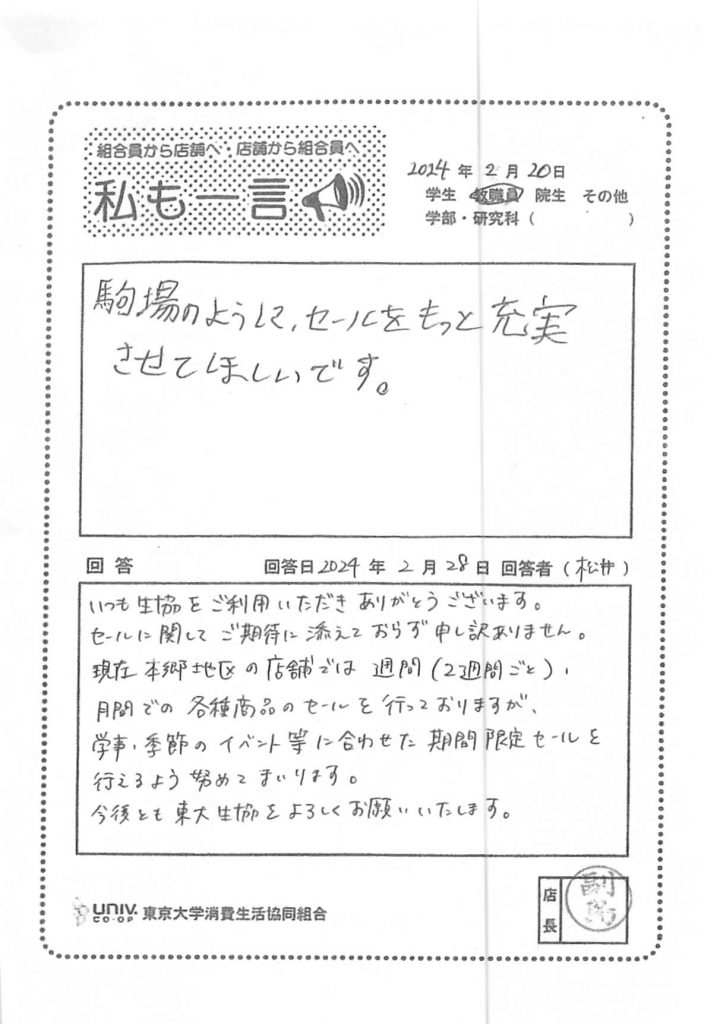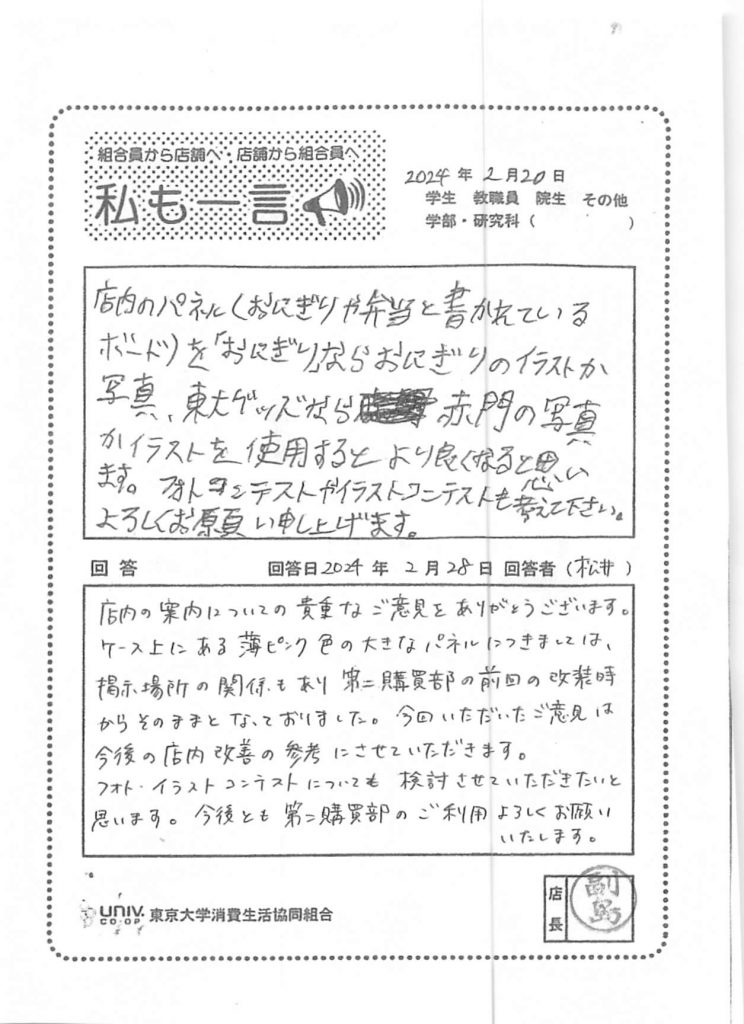Uni style fit...
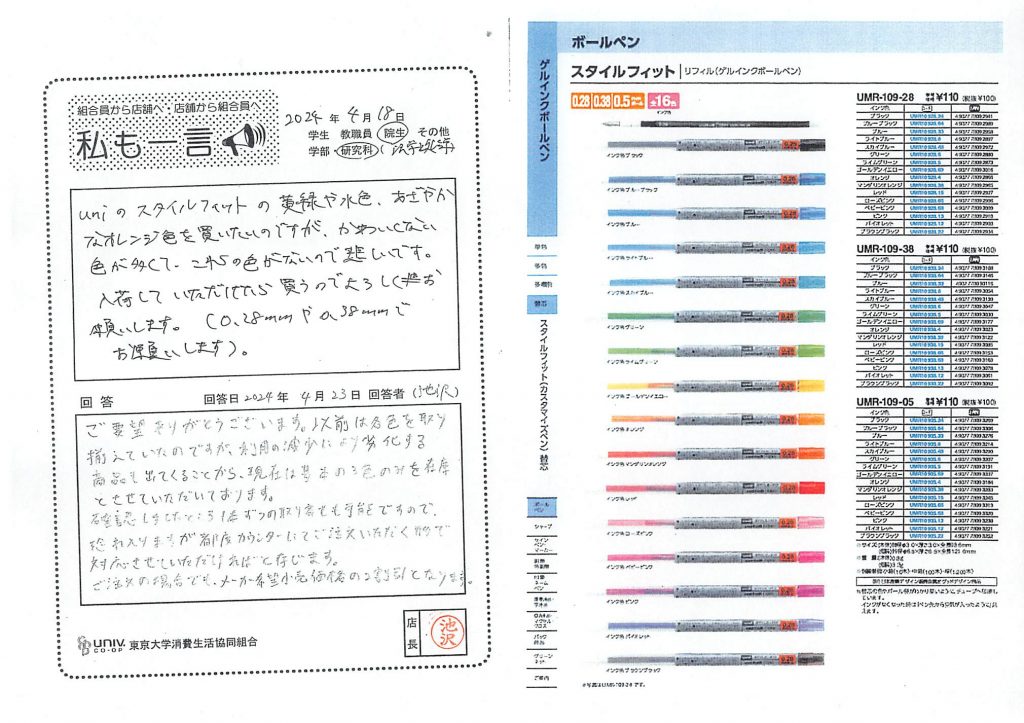
Posting a word cardherefrom

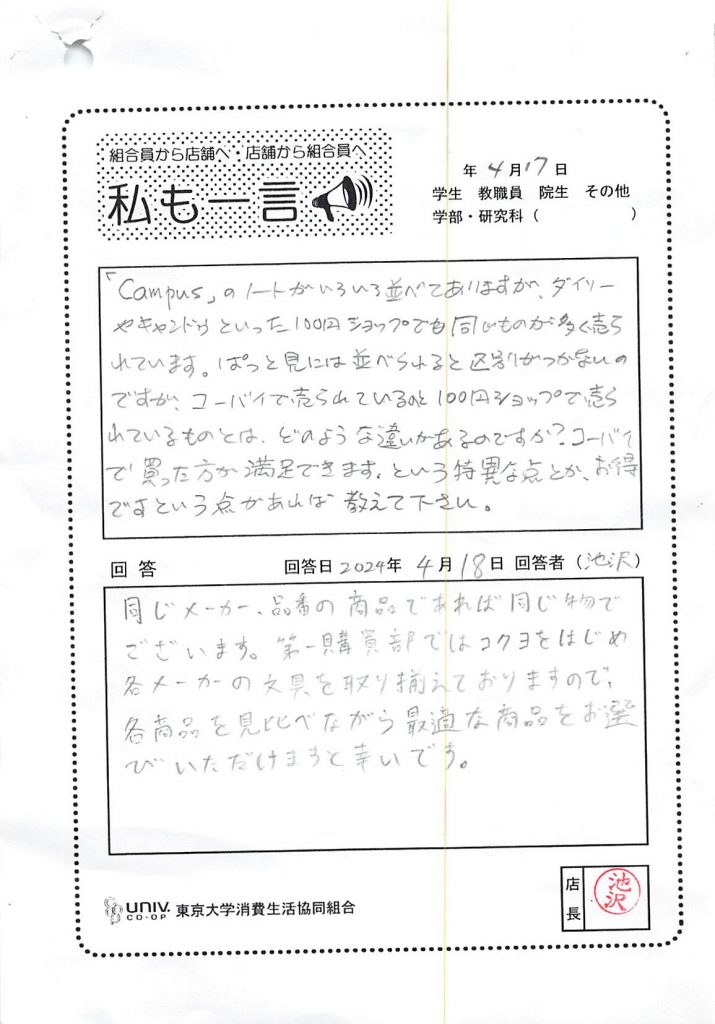
Q:
Regarding product pricing, why are products that can be purchased at a convenience store, such as drinks, sometimes priced the same as at Lawson right next door?
While Lawson is a for-profit company, the Co-op is a non-profit, so there should be a discount of a few percent, if not the entire profit. Also, by not being open 24 hours a day, we should be able to make a bigger difference in terms of labor costs, utility costs, etc.
At present, it is difficult to imagine a situation where the Lawson within the premises is operating at a loss. I feel that this is due to negligence due to the fact that there is no large supermarket nearby. Please consider this.
A:
At the university co-op, we conduct our business activities with the belief that our contribution to our members is to provide better products at the lowest possible price.
Regarding the beverages and convenience store products you mentioned (I realized that you were probably referring to bread and cooked rice), the idea of price is basically to keep the price from being higher than the price at a general convenience store. This is the basic idea.
As you said, the university co-op is a non-profit organization and is not open 24 hours a day. However, please understand that the business scale of a university co-op with a major convenience store is overwhelmingly small, and there are various circumstances that make it difficult to improve sales efficiency.
I believe that the Lawson chain's sales in 2022 will be approximately 2.5 trillion yen, with most of that coming from the food category. The total supply volume of member co-ops of the University Co-op Business Federation, to which the University of Tokyo Co-op outsources purchasing and procurement, is approximately 120 billion yen, of which only 12 billion yen is for beverages and food.
Major convenience stores have formed dominant areas, optimizing logistics and reducing store management costs, but university co-ops have stores only in areas where universities are located, making it extremely difficult to establish efficient logistics. There is a situation. In addition, many of the union members are university students, and during summer and spring vacations, the population on university campuses decreases significantly, reducing the number of products received and making it impossible to move logistics stably. This is a factor that weighs heavily on costs.
If only profits are prioritized, it may be most rational to open only some stores in Hongo and Komaba, and not to open stores in other attached research institutes that have a small convection population. However, university co-ops, whose mission is to support the welfare of universities, cannot decide on store openings or business hours solely on the basis of whether they will make a profit or not.
However, this does not mean that the co-op has no choice but to pay high prices; instead, the university co-op will continue to work diligently to make its products as inexpensive as possible. We would like to promote initiatives such as limited-time sales and price reductions on specific products.
Regarding your comment, we ask for your understanding that due to various circumstances, there are some products that we are unable to match in price with major convenience stores.
